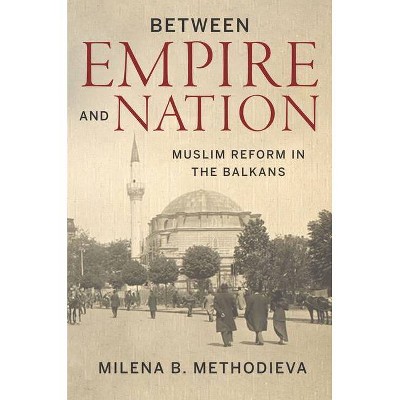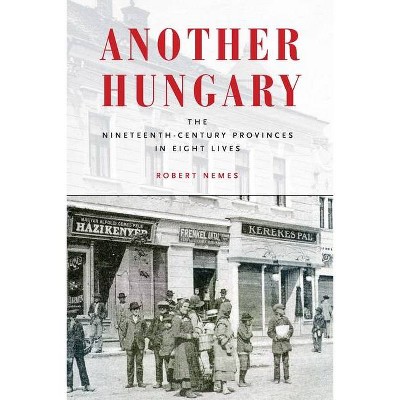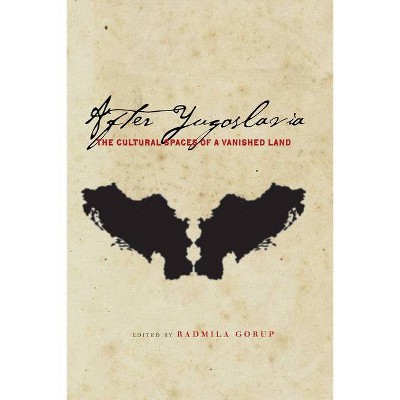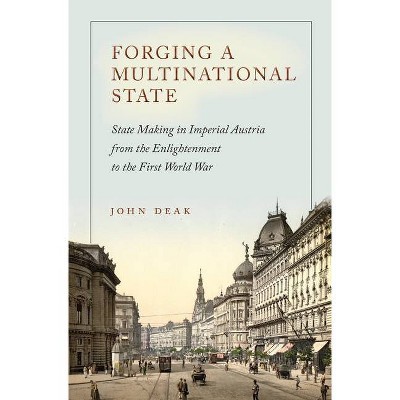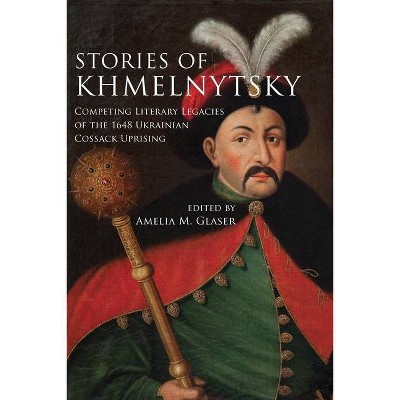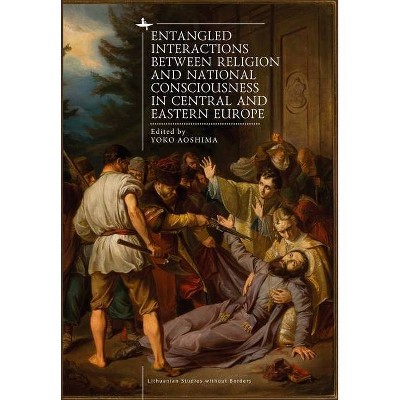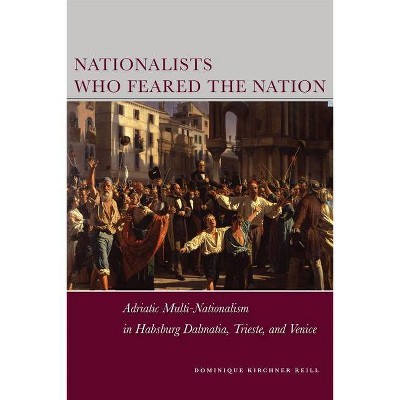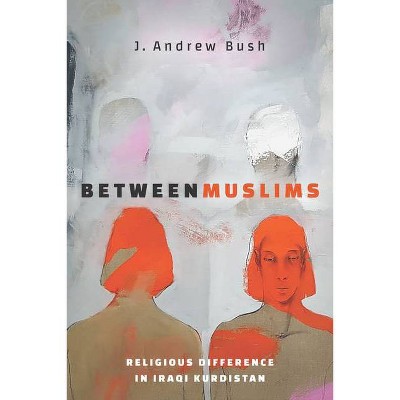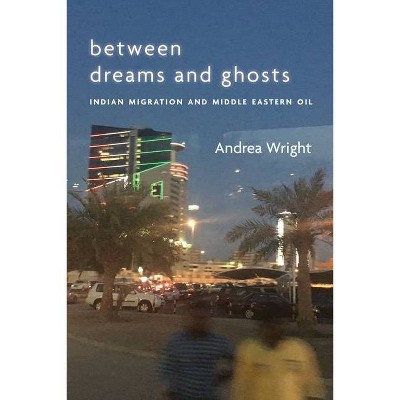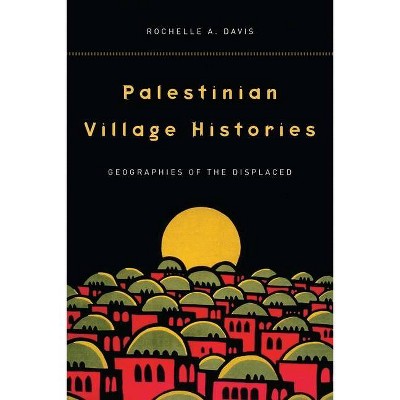Between States - (Stanford Studies on Central and Eastern Europe) by Holly Case (Paperback)
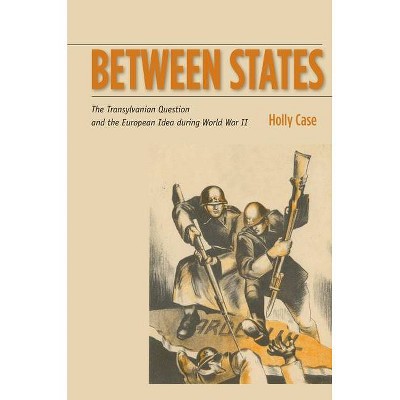
Similar Products
Products of same category from the store
AllProduct info
<p/><br></br><p><b> About the Book </b></p></br></br><i>Between States</i> uses the story of a territorial dispute between Hungary and Romania to recast the narrative of the Second World War and how it fits into the history of Europe in the twentieth century.<p/><br></br><p><b> Book Synopsis </b></p></br></br><i>Between States</i> uses the story of a territorial dispute between Hungary and Romania to recast the narrative of the Second World War and how it fits into the history of Europe in the twentieth century.<p/><br></br><p><b> Review Quotes </b></p></br></br><br><i>Between States</i> is an impressive book in breadth of coverage, the author's careful balancing of perspectives and evenhandedness of presentation, as well as in terms of readability. It will certainly become a book read and discussed by specialists in east European history, and it will contribute to moving the field of World War II historiography toward a more comparativist transnational perspective.--Maria Bucur "Indiana University, <i>The Journal of Central European History</i>"<br><br><i>Between States</i> is the product of much diligent and original research, bringing together a great deal of material in different languages from archives in a number of countries.--Alex Drace-Francis "<i>European History Quarterly</i>"<br><br>[<i>Between States</i>] focuses chiefly on events between 1940 and 1944, in what is a stellar blend of classic diplomatic history with microhistory . . . Holly Case's microhistorical analysis of Cluj serves to caution us that ethnic identity, often depicted as static, is indeed hardly spontaneous; instead it is the product of a state-supported or state-obstructed situative process of identification. Case's book offers much not only to those Hungarian historians engaged in re-elaborating our understanding of the [era] . . . but also to scholars of the region who seek to finally supersede the national narratives that followed the collapse of state socialism with another approach, that of transnational and comparative social history.--Stefano Bottoni "<i>Hungarian Historical Review</i>"<br><br>[T]his book [is] a welcome addition to the literature on nationalism in contemporary eastern Europe, and its resolutely transnational approach makes it of great importance to those interested in the topics of national identity well beyond the borders of Hungary and Romania, and indeed the European Union.--Marius Turda "Oxford Brookes University, <i>Slavic Review</i>"<br><br>A very original and sophisticated piece of work . . . Full of new insights and . . . amazing research in a great variety of archives and languages . . . pulled together in a most intelligent way.--Mark Mazower "Columbia University"<br><br>Case's thoughtful, substantive work challenges prevailing conception on 20th-century European politics by arguing that small states do make an impact on larger European concerns . . . Case's book also suggests significant new avenues of research on national and European identity politics . . . Highly recommended.--R. K. Byczkiewicz "<i>Choice</i>"<br><br>Eloquently written with no small sense of irony and the absurd, amply illustrated, and meticulously researched, Case's book is a pleasure to read. Based on archives from eight different countries in a multitude of languages, this is the work of a very careful historian.--Roland Clark "University of Pittsburgh, <i>H-Net</i>"<br><br>On the basis of impeccable research in multiple languages, and with a clear mind and lucid pen, Holly Case has written an existential account of nationalism . . . [Case] creates a form of analysis that every student of nationality and nationalism will have to consider.--Timothy Snyder "<i>Austrian History Yearbook</i>"<br><br>This well-written and meticulously researched study advances large and provocative claims. At its center stands the 'Transylvanian Question': the struggle, particularly bitter during World War II, between Hungary and Romania for possession of the borderland made famous by Bram Stoker. It is not Holly Case's purpose to side with one country or the other but to demonstrate the importance of this and, by extension, other territorial disputes to the larger history of Europe.--Lee Congdon "<i>American Historical Review</i>"<br><br>This will take a rightful place among the really important and interesting works written on East Central Europe in the last forty years. It also figures among the most penetrating and memorable evocations of place written about Europe as a whole. The author is a brilliant, naturally gifted writer, with a keen sense for telling formulation.--John Connelly, University of California "Berkeley"<br><p/><br></br><p><b> About the Author </b></p></br></br>Holly Case is Associate Professor of History at Cornell University.
Price History
Price Archive shows prices from various stores, lets you see history and find the cheapest. There is no actual sale on the website. For all support, inquiry and suggestion messagescommunication@pricearchive.us
